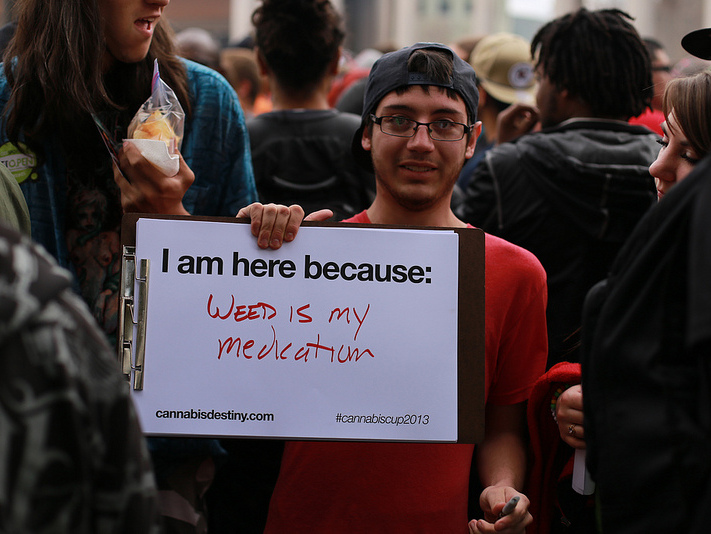
Updated Sept. 5, 2013
Originally published Sept. 3, 2013
Late last week, the U.S. Department of Justice answered the million dollar question lawmakers in Washington state and Colorado have been waiting for since the states legalized recreational marijuana last November: How would the federal government respond to the passage of the legalization legislation?
In a press release, the DOJ announced that on Thursday morning Attorney General Eric Holder held a conference call with Colorado Gov. John Hickenlooper and Washington’s Gov. Jay Inslee and informed the two that the DOJ had decided to defer its legal right to challenge the marijuana legalization laws and would not file a lawsuit against either state for failure to follow the laws under the federal Controlled Substance Act.
Under federal law, marijuana is classified as a Schedule I drug, meaning the U.S. government does not recognize a valid use of marijuana at any time — even for medical purposes. It believes marijuana is highly addictive, has a high potential for abuse and functions as a gateway drug.
While Washington and Colorado are free to continue implementing state rules and regulations regarding the legalization of recreational marijuana, the press release doesn’t mention anything about how it will respond to states that have legalized medical marijuana, nor does it say anything about allowing residents in either state to use marijuana for either recreational or medical purposes.
Though the Justice Department says it has no plans to legalize marijuana, the government entity said that marijuana will remain illegal under the Controlled Substances Act and “federal prosecutors will continue to aggressively enforce this statute.”
After speaking with Holder, Hickenlooper released a statement thanking the federal government for respecting the will of Colorado voters.
“We share with the federal government its priorities going forward,” he added, before explaining that state lawmakers “are working to improve education and prevention efforts directed at young people and on enforcement tools to prevent access to marijuana by those under 21 years of age.
“We are also determined to keep marijuana businesses from being fronts for criminal enterprises or other illegal activity, and we are committed to preventing the exportation of marijuana out of Colorado while also enhancing efforts to keep state roads safer from impaired drivers.”
Talking to Bloomberg, Inslee said the DOJ’s decision indicated the federal government trusts Washington and Colorado and said he would ensure that the Washington state government would implement a well-regulated system that would respect the federal Controlled Substances Act.
Despite the Catch-22s riddled throughout the DOJ’s “official” stance on recreational marijuana use in Washington and Colorado, some marijuana advocates, such as Erik Altieri, the communications director for the National Organization for the Reform of Marijuana Laws (NORML), called the response a “historic step forward.”
Altieri said that “assuming the Department of Justice stays true to their word, these states and others will no doubt move forward with the state-licensed regulation of cannabis for adults. The public has evolved beyond the simplistic, failed policies of cannabis prohibition and are seeking pragmatic, regulatory alternatives. It is encouraging to see that the federal government no longer intends to stand in their way.”
Dan Riffle is the director of federal policies for the Marijuana Policy Project (MPP), the nation’s largest marijuana policy organization. He agreed with Altieri, saying, “We applaud the Department of Justice and other federal agencies for its thoughtful approach and sensible decision. It is time for the federal government to start working with state officials to develop enforcement policies that respect state voters, as well as federal interests. The next step is for Congress to act. We need to fix our nation’s broken marijuana laws and not just continue to work around them.”
But not all marijuana advocates were convinced that the DOJ’s announcement was as much of a step forward as others claimed. This group pointed out that while the DOJ said it did not have plans to sue the two states that legalized recreational marijuana “at this time,” the government entity said nothing about states that had legalized medical marijuana and reserved the right to sue Washington and Colorado at a later date.
Steph Sherer is the Executive Director of Americans for Safe Access (ASA), a medical marijuana advocacy group. She said that while the group was hopeful the DOJ would “adhere to these policies, our experience with the Obama Administration so far has been lots of double-talk.”
She said that “In order to gain the trust of Americans, Obama’s U.S. Attorneys must stop their aggressive and unnecessary enforcement campaigns in medical marijuana states.”


